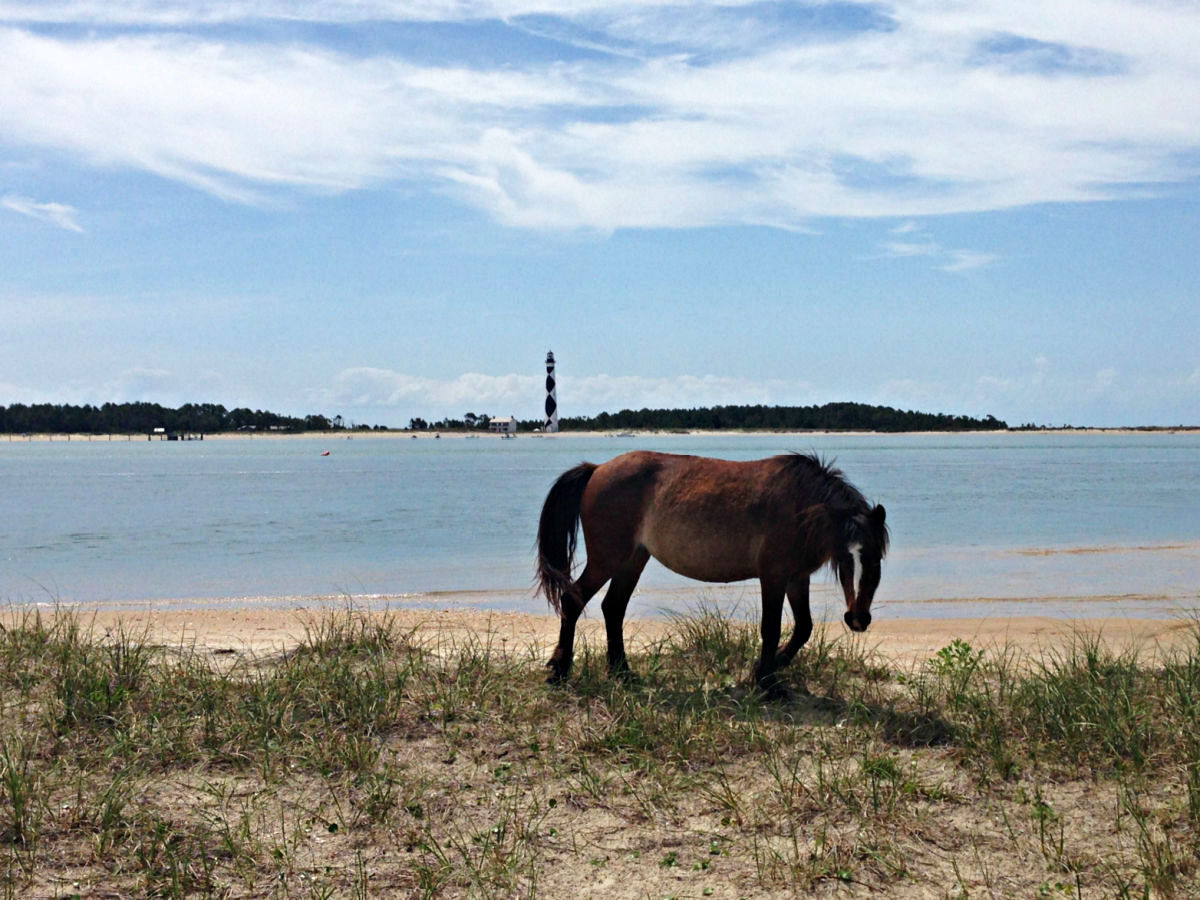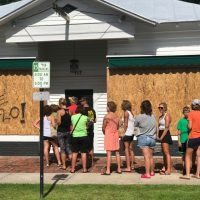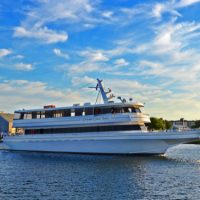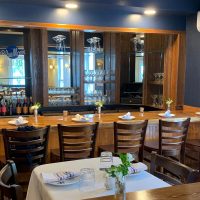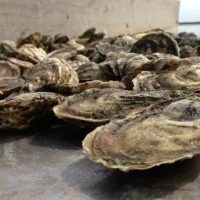The wild horses of Shackleford Banks and Bird Shoal are more than just majestic creatures—they are a legacy. Their presence tells the story of survival, adaptation, and the enduring spirit of the coastal region. Protecting them isn’t just about following guidelines; it’s about embracing stewardship, ensuring that future generations can witness their beauty just as we do today.
The conservation of these herds ties into a larger conversation about preserving Beaufort’s delicate ecosystems. These barrier islands face increasing challenges—from rising sea levels to human impact. Every choice visitors make, from keeping a respectful distance to properly disposing of waste, influences the long-term health of the land and wildlife.
In the salt-kissed air of Beaufort’s coast, where the land meets the tides, the wild horses of Shackleford Banks and the Rachel Carson Reserve roam as they have for generations—unbound, untamed, enduring. Their presence speaks to a deeper legacy: survival, heritage, and resilience against time and tide.
Whispers of the Dunes: A Story of Resilience and Remembrance
The wind carries the sound of distant waves, rippling through the dunes of Shackleford Banks. The wild horses move in silent harmony—mares grazing, foals stumbling through the sand on wobbly legs, stallions watching over the herd with quiet vigilance. They have been here for centuries, shaped by the tides and time itself, untouched yet wholly intertwined with the coastal rhythms of Beaufort.
A Legacy of Adaptation
Believed to be descendants of Spanish mustangs, these horses arrived centuries ago, adapting to the rugged demands of island life. They forage among the dunes, seek freshwater in hidden pools, and navigate an ever-changing landscape sculpted by the winds. They exist in balance—untethered yet profoundly connected to the rhythms of their coastal home.
Preserving Beaufort’s Wild Heritage
The conservation of these herds ties into a larger conversation about preserving Beaufort’s delicate ecosystems. These barrier islands face increasing challenges—from rising sea levels to human impact. Every choice visitors make, from keeping a respectful distance to properly disposing of waste, influences the long-term health of the land and wildlife.
Shackleford Banks: The Untamed Legacy
Shackleford Banks, part of the Cape Lookout National Seashore, is home to a herd of wild horses that have survived on native grass and rainwater pools. Managed in partnership with the National Park Service, their health and sustainability are carefully monitored while preserving their freedom.
Visitors can access Shackleford Banks by ferry or private boat to witness these majestic creatures in their natural habitat. Strict guidelines ensure their well-being—maintaining a respectful distance, refraining from feeding them, and allowing them to live undisturbed.
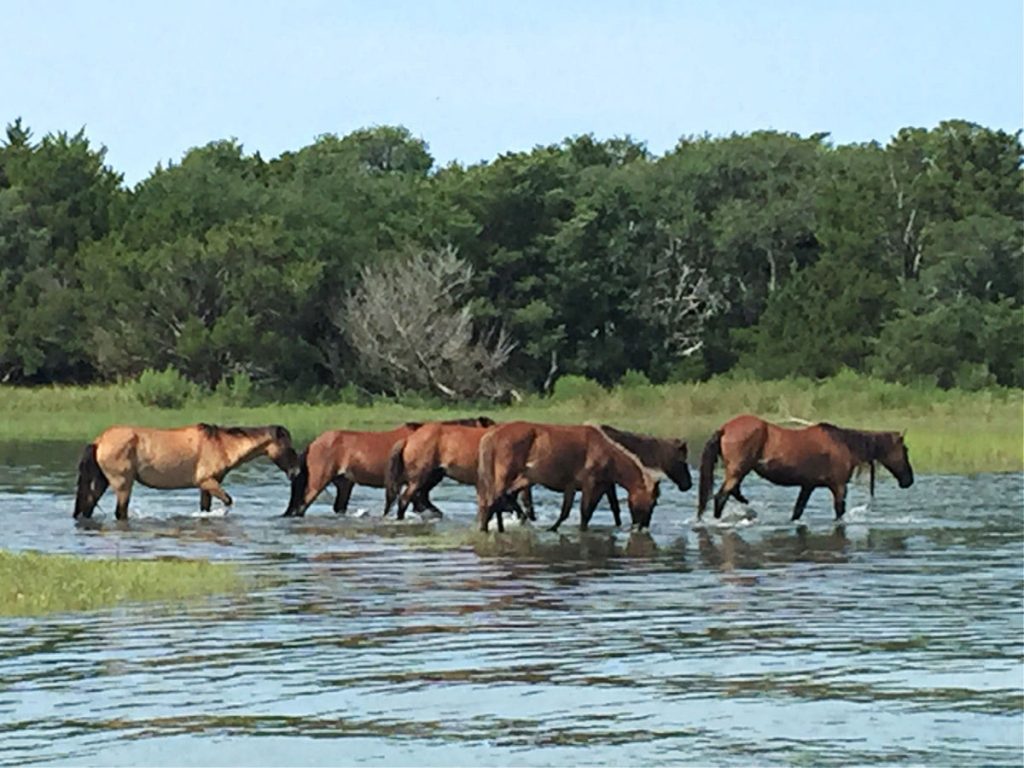
Rachel Carson Reserve: A Coastal Sanctuary
Across Taylor’s Creek from Beaufort, the Rachel Carson Reserve serves as a protected habitat for wild horses introduced in the 1940s. These resilient animals primarily feed on saltmarsh cordgrass and dig for fresh water, demonstrating remarkable adaptability.
Visitors arrive, eager to witness their wild beauty, drawn to the sight of hooves kicking up sprays of sand and windswept manes whipping through salty air. But there are silent agreements between past and present, between those who come and those who truly belong to this place. Keep your distance. Let them live as they always have.
Respect their space. Honor their world. Safeguard their legacy.
Understanding the Wild Horse Rules
The wild horses of Shackleford Banks and Bird Shoal are direct descendants of Spanish mustangs that arrived centuries ago. Over time, they have adapted to the challenges of island life—finding food among sparse vegetation, locating fresh water sources, and navigating shifting tides and unpredictable weather. These horses rely entirely on their natural instincts, making it crucial that human interaction remains minimal.
Respecting Their Space
Maintaining at least 50 feet of distance from the horses is more than just a courtesy—it is essential for both their well-being and visitor safety. When people approach too closely, it can stress the herd, disrupt their movement, and even cause defensive reactions.
Horses in harems (family groups) frequently relocate to avoid biting flies, search for fresh grazing spots, or reach watering holes. Crowding them can interfere with access to these resources.
For newborn foals, space is even more critical. They must nurse frequently and bond with their mothers undisturbed. Human interference can disrupt this crucial care, leading to unnecessary stress. Observing from a respectful distance ensures their continued health and natural development.
The Importance of Leashing Dogs
Many visitors enjoy bringing their dogs along on outdoor adventures, but unleashed pets pose a serious risk to wild horses. Horses see unfamiliar animals as potential threats, and a loose dog may provoke defensive behavior. A startled horse can deliver a powerful kick, putting pets in danger.
Keeping dogs leashed not only follows local regulations but safeguards both visiting animals and Beaufort’s native wildlife.
Leave No Trace—Including Food
Wild horses survive by foraging naturally, consuming island grasses and vegetation suited to their health. Feeding them human food—even with good intentions—can be harmful. It can cause digestive issues, dependency on unnatural sources, and behavioral changes.
Additionally, leftover food and trash can attract other wildlife, disrupting the delicate ecosystem. Visitors should take all waste, including food scraps, off the island to preserve the environment’s natural balance.
Safeguarding Their Legacy
Each rule serves a vital purpose. Keeping a respectful distance allows these majestic creatures to roam, graze, and care for their young without stress or disruption.
Visitors play a direct role in ensuring their survival—not just by following guidelines, but by embracing a deeper sense of stewardship. Respect their space, honor their world, and safeguard their legacy for generations to come.
Do not force them into unnatural contact. Respect their space, their world, their legacy.
A Responsibility Beyond Rules
More than iconic symbols, Beaufort’s wild horses represent a delicate balance between nature and human presence. Preserving them isn’t just about guidelines—it’s about embracing a deeper sense of responsibility.
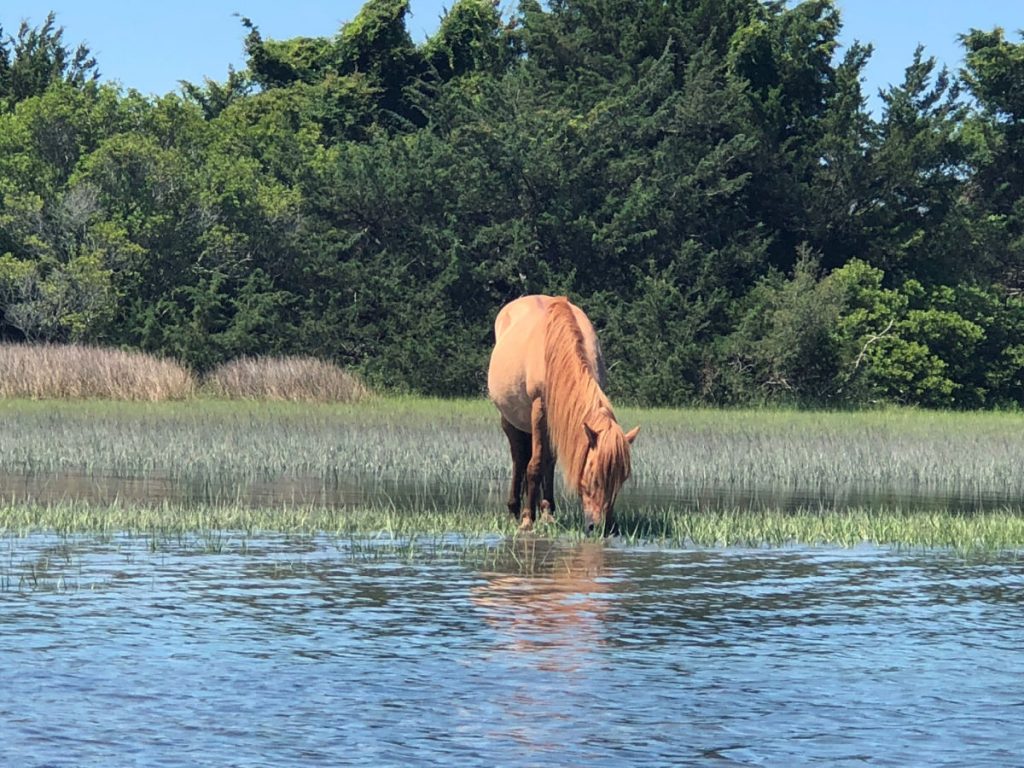
As the wind carries the sound of distant waves across the dunes, the wild horses move in silent harmony—mares grazing, foals stumbling through the sand, stallions watching over the herd with quiet vigilance. They have been here for centuries, shaped by time and tide, untouched yet deeply woven into Beaufort’s coastal rhythms.
Once, Spanish mustangs arrived—perhaps shipwrecked, perhaps released by explorers who never returned. Against all odds, they learned to survive, forging their own freedom in the vast openness of
Visitors arrive, eager to witness their wild beauty, drawn to the sight of hooves kicking up sprays of sand and windswept manes whipping through salty air. But there are silent agreements between past and present, between those who come and those who truly belong to this place. Keep your distance. Let them live as they always have.
Today, they remain—a living testament to resilience, history, and the enduring nature of all that refuses to be forgotten.
Respect their space. Honor their world. Safeguard their legacy.
And on this weekend—Memorial Day—the story takes on new meaning.
This weekend holds an even greater significance beyond conservation—it’s a time to honor those who have made the ultimate sacrifice for our freedoms. There’s an undeniable parallel between the wild horses of Shackleford Banks and the ideals we reflect on during Memorial Day. Just as these horses endure against the forces of nature, maintaining their autonomy and heritage, so too have the brave men and women who fought to protect our way of life.
Standing on the shores of Beaufort, watching these magnificent creatures move along the coastline, one can’t help but feel the weight of history—the sacrifices made, the freedoms earned, the responsibility we bear in safeguarding both the natural world and the legacies of those who came before us.
On Shackleford Banks, the horses are free—because they have endured.
And so, too, have the legacies of the fallen.
Let this weekend be a tribute—not just to memory, but to respect. Not just to admiration, but to action. Whether in the simple act of leaving the wild horses undisturbed or in the quiet gratitude for the sacrifices made in service of this nation, let us hold this space sacred.
Let us remember.
Let us preserve.
Let us honor.
Please note: Photos were taken 50 ft. or more away from the horses and have been cropped.
